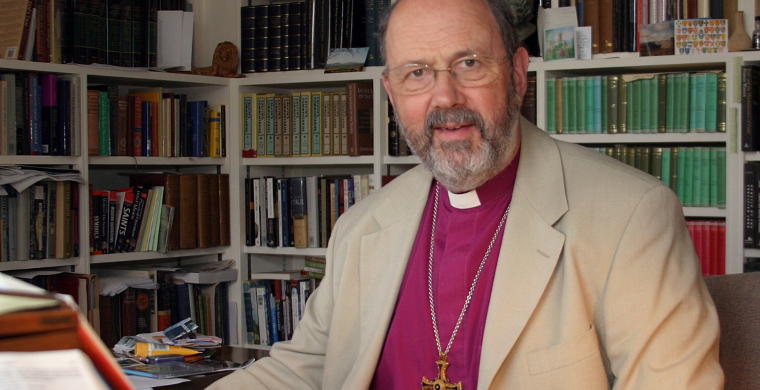THE PROBLEM OF N.T. WRIGHT
By Roger Salter
Special to VIRTUEONLINE
www.virtueonline.org
April 3, 2020
I cannot comprehend the adulation accorded to Nicholas Thomas Wright.
He may be a giant of the theological and academic world but that is no guarantee of his sound-ness or pastoral worth. It is from the context of the parish that I critique this man where puzzle-ment and confusion over his teaching is prevalent.
Wright writes smugly of his new and revolutionary insights that correct traditional teaching from the age of Augustine. He consigns the teaching of the Reformation, and especially Luther, to the dark cellars of medievalism. He liberally insults the old cronies who adhere to the traditional doc-trines of soteriology. All the way through his theological meanderings and muddle he denies the essential and key doctrines of the faith that attaches us savingly to the God of our rescue from moral perversion and condemnation.
Academics may like to play theological chess with him and glorify their reputations by clinging to his coat-tails but he is slowly impregnating the minds, even of intentionally loyal advocates of Ho-ly Scripture, with notions that ease them away from the truths of divine revelation.
I continue with some scribblings from some occasional notes that lie on my desk, and which I hope to amplify with more deliberation and evidence. I simply take the opportunity, following his disastrous comments in Time magazine to launch forward from the starting blocks.
I realize that this contribution is insufficient but my disgust with said author is huge, and I believe the danger he poses to authentic Christian faith is enormous, seeping into the thought of so many transfixed by his reputation and celebrity.
Just these thoughts for now:
There is something very dubious about NTW. On the basis of the "analogy of faith, so-called. He counters the authority of Scripture, tearing fundamental theology to shreds. I think his method is sinister. His enchantment with a particular subjective inclination is so destructive. He arrogantly dismisses the mind of the Church, long established, on human acceptance with God (the minis-try and revolution by the hand and wit of Luther is not a valid analogy whatsoever).
Even Catholic history manifests a basic orthodoxy in the procedure of controversy between the Reformed and the Romans. Hans Kung points to the different theological concerns of the people of God in various eras, and the theme of getting right with God is persistent in the history of Catholic thought. The evangelical conversion of Cardinal Contarini and the Italian "spirituali" (in-cluding Michelangelo) testify to the lively thought on justification in Roman circles. The two sides in 16th century debate recognize common issues and intent on the topic which definitely do not match the novelties of N.T. Wright. The two contenders for truth share a common purpose as to how sinners reconcile with God.
For Wright justification is not a salvific matter at all, but a formal identification with a community that ostensibly recognizes the kingship of Christ, but that due status of the Lord Jesus stems from his salvific achievement (Isaiah 53, especially vv 9-12). There is no warmth for the soul in Wright's theologizing, for many of us still feel the weight and burden of our sin and seek the par-don and acceptance of the Lord whom we have offended so unjustly and unworthily, even if it is a medieval feeling in the thought of some - especially among unbelievers.
Wright affords no pastoral consolation, no personal security to the anxious and convicted soul. He cheapens valid Christian experience with snide asides (more later). We simply have a con-tract with a God who has ceased to insist upon certain Old Testament ordinances. We lose our assurance of reconciliation with God, pending the verdict on our attachment to him disclosed at the final assize. That's the way I see it, if I understand Wright aright. But then, how can anyone be sure that they have grasped his meaning, as it changes, at least in presentation and many de-nials as a weather-vane? We all know the origin of confusion.
I believe Wright is fascinated with a subjective (subconscious) emotional impression that invites him to seek notoriety for the sake of personal significance. His advocacy of his view makes him big. It is all a project of self-love. If he really compared Scripture with Scripture, and did not treat of it with dash and cavalier enthusiasm (for his interpretation reveals many leaps and gaps in his application) he would be just one of the crowd of unsensational biblical expositors without a dis-tinctive name. Again, he is frequently insulting and patronizing to the ordinary chaps who seek faithfulness to the Word of God rather than astounding and dazzling originality.
A comparison of this man with the pastoral and biblical skill of Martin Luther is warranted.















